With the rising global demand for renewable energy, hydropower engineering and solar energy are two of the most prominent solutions. Both energy sources offer sustainable alternatives to fossil fuels but differ in terms of efficiency, cost, environmental impact, and practical applications. This article provides a detailed comparison between hydropower engineering and solar energy, helping you determine which is best suited for different scenarios.


What is Hydropower Engineering?
Hydropower engineering is the process of generating electricity using the kinetic and potential energy of flowing or stored water. It involves the construction of dams, reservoirs, and hydroelectric power plants that convert water movement into mechanical energy, which is then transformed into electricity.
How Hydropower Works
- Water is stored in a reservoir or sourced from a flowing river.
- The water passes through turbines, causing them to spin.
- The spinning turbines drive generators that produce electricity.
- The electricity is then distributed through the power grid.
Advantages of Hydropower
- Reliable & Consistent Power: Unlike solar energy, hydropower operates 24/7.
- Long Lifespan: Hydropower plants last for decades with proper maintenance.
- Low Carbon Footprint: Produces no direct emissions.
- Energy Storage Capability: Pumped-storage hydropower can store excess electricity.
- Cost-Effective in the Long Run: Once built, operational costs are low.
Disadvantages of Hydropower
- High Initial Costs: Dams and hydro plants require large investments.
- Environmental Disruptions: Can disrupt aquatic ecosystems and wildlife.
- Geographical Limitations: Requires large water bodies or strong river currents.
- Risk of Droughts: Water availability impacts power generation.
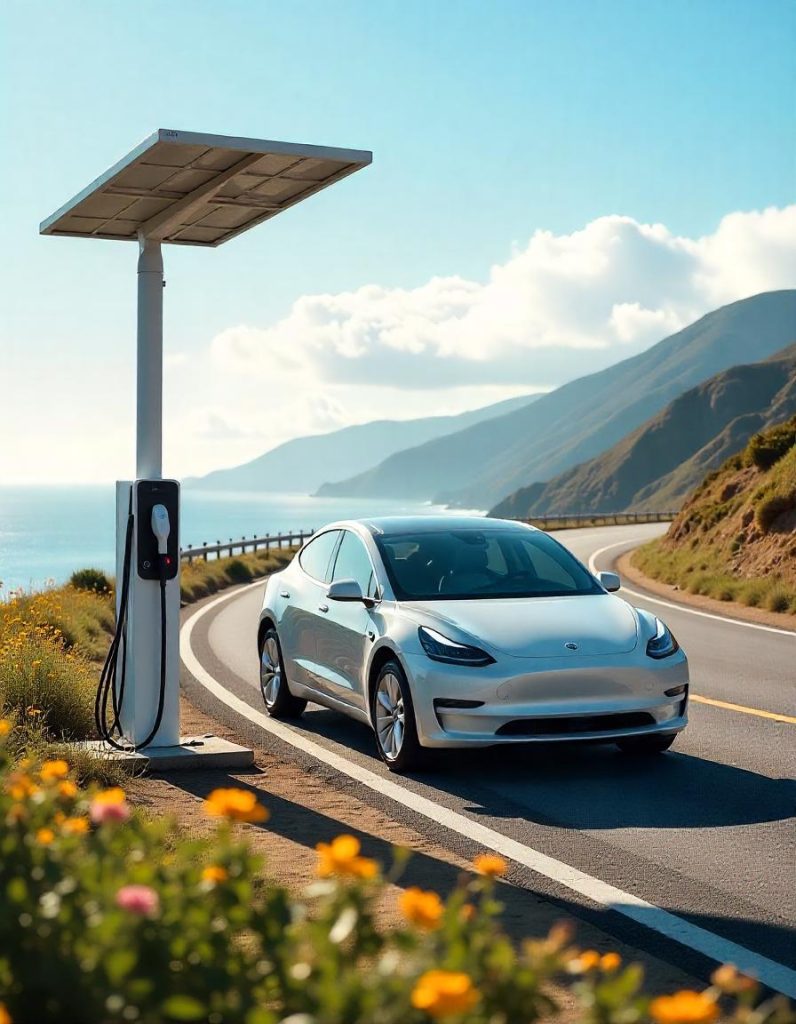
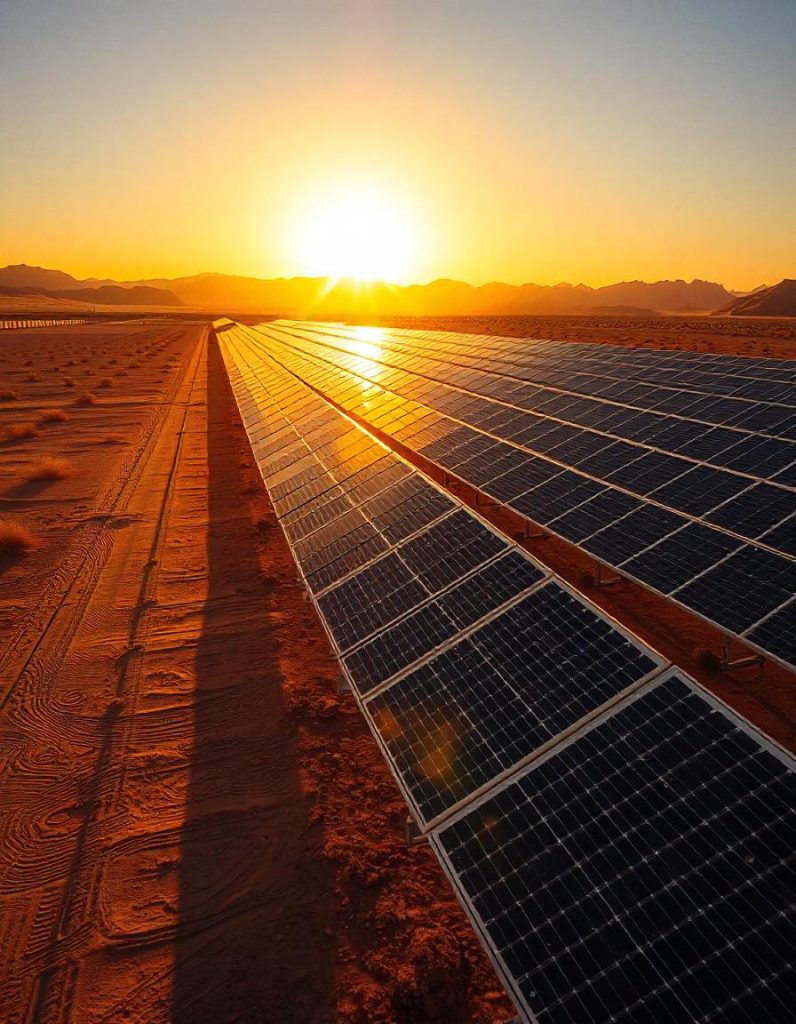
What is Solar Energy?
Solar energy is the conversion of sunlight into electricity using photovoltaic (PV) panels or solar thermal systems. This renewable source harnesses the sun’s power and transforms it into usable energy.
How Solar Energy Works
- Photovoltaic (PV) cells in solar panels absorb sunlight.
- The absorbed sunlight generates direct current (DC) electricity.
- Inverters convert DC electricity into alternating current (AC) for household and industrial use.
- The electricity is either used immediately, stored in batteries, or sent to the power grid.
Advantages of Solar Energy
- Abundant & Renewable: Sunlight is freely available worldwide.
- Scalable: Can be installed on rooftops, large solar farms, or small devices.
- Minimal Maintenance: Solar panels require little upkeep.
- No Water Usage: Unlike hydropower, solar does not rely on water resources.
- Environmentally Friendly: No emissions or ecosystem disruption.
Disadvantages of Solar Energy
- Weather Dependent: Efficiency drops on cloudy days and at night.
- High Initial Costs: Solar panel installations can be expensive upfront.
- Energy Storage Needed: Batteries are required for nighttime power use.
- Space Requirements: Large solar farms require significant land.
| Feature | Hydropower Engineering | Solar Energy |
| Reliability | 24/7 power generation | Weather-dependent |
| Initial Cost | High (dam construction) | Moderate (solar panel setup) |
| Operating Cost | Low after construction | Low, but battery storage may add costs |
| Environmental Impact | Alters ecosystems & requires large water bodies | No emissions, but land use can be a concern |
| Scalability | Limited by geography | Highly scalable for homes & businesses |
| Maintenance | Requires upkeep of turbines & dams | Minimal maintenance needed |
| Energy Storage | Pumped storage available | Requires batteries for off-grid use |
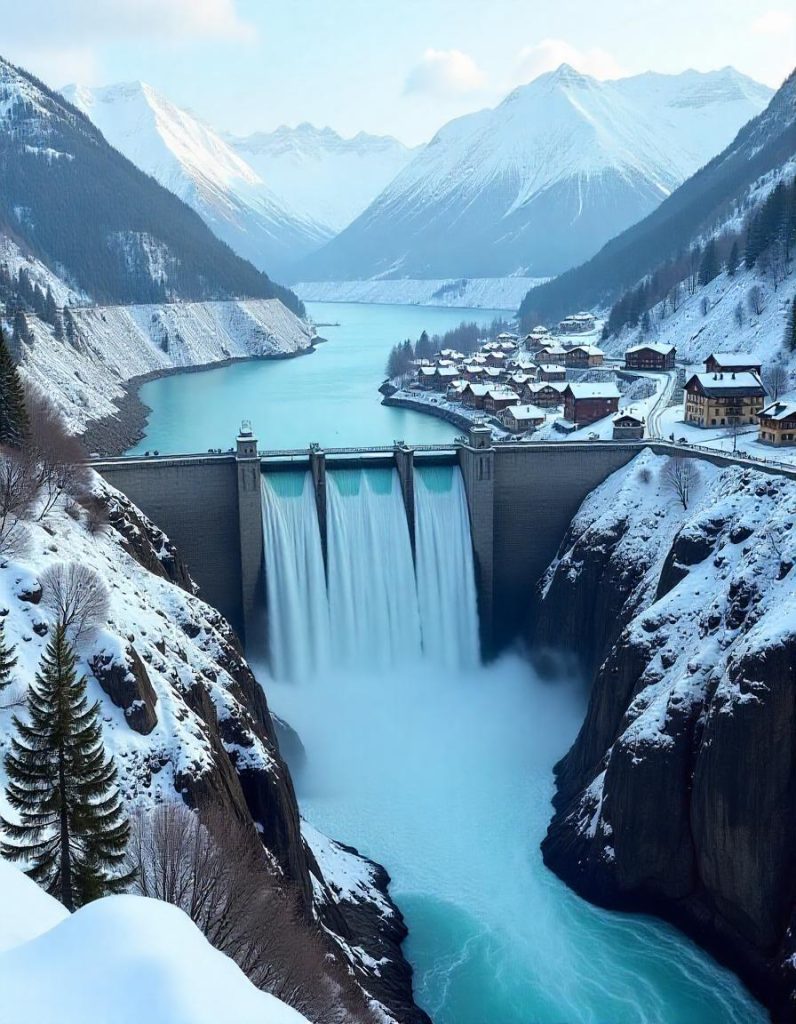
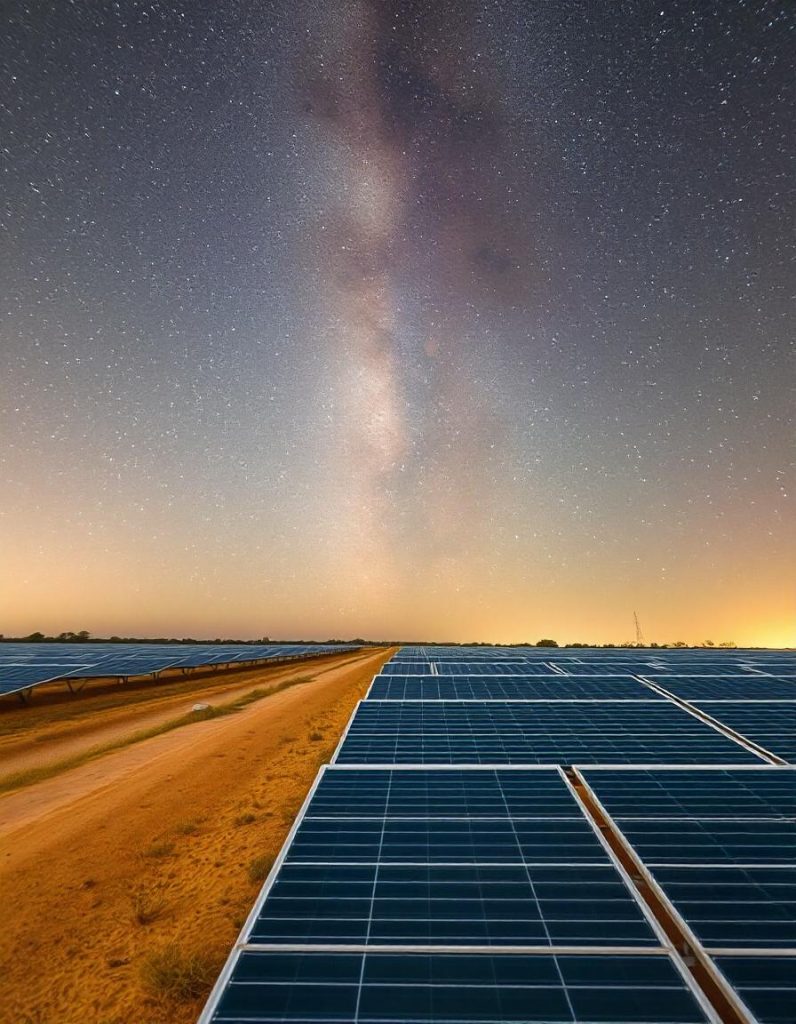
Which is Better: Hydropower or Solar Energy?
The choice between hydropower engineering and solar energy depends on various factors such as location, cost, and environmental concerns.
When to Choose Hydropower
- If you have access to a reliable water source (e.g., rivers, dams).
- When seeking constant, large-scale electricity production.
- For countries or regions with established hydropower infrastructure.
When to Choose Solar Energy
- If you live in a sunny region with ample daylight hours.
- When looking for a scalable and decentralized power source.
- For residential or commercial use without large infrastructure costs.
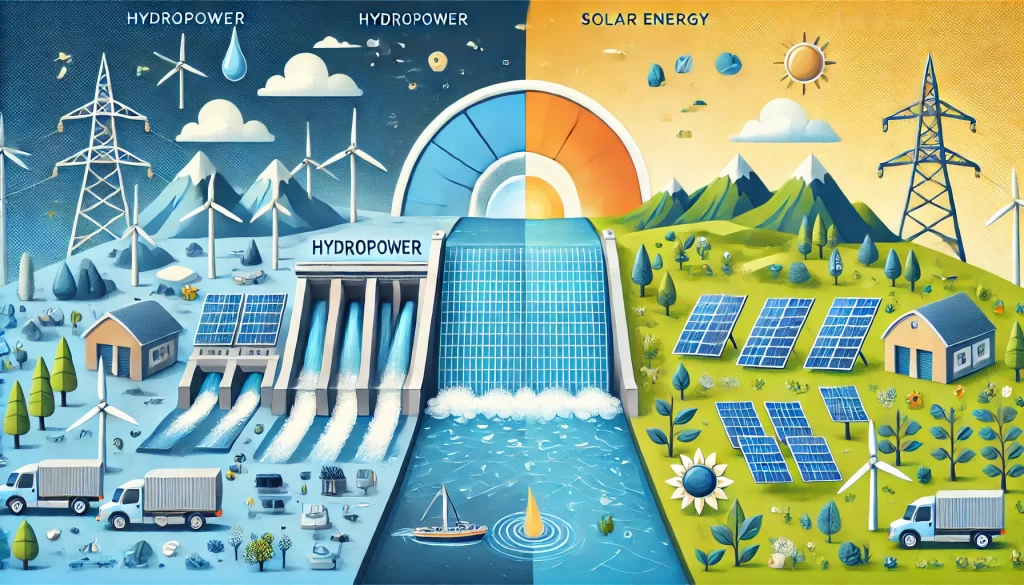
Future of Renewable Energy: Combining Solar & Hydropower
To ensure a sustainable energy future, many countries are investing in hybrid energy systems that integrate both hydropower and solar energy. This combination enhances grid reliability, compensating for solar’s intermittency and hydropower’s dependence on water availability.
Example of Hybrid Systems
- Floating Solar Panels on Hydropower Reservoirs: Maximizes land and water use efficiency.
- Solar + Hydropower Energy Storage: Solar can charge batteries, while hydropower provides continuous backup power.
Both hydropower engineering and solar energy offer significant benefits as renewable energy sources. While hydropower provides reliable, large-scale energy, solar power is more flexible and widely accessible. The ideal choice depends on geographic location, infrastructure, cost, and sustainability goals. As technology advances, integrating both energy sources can lead to a more resilient and green energy future.